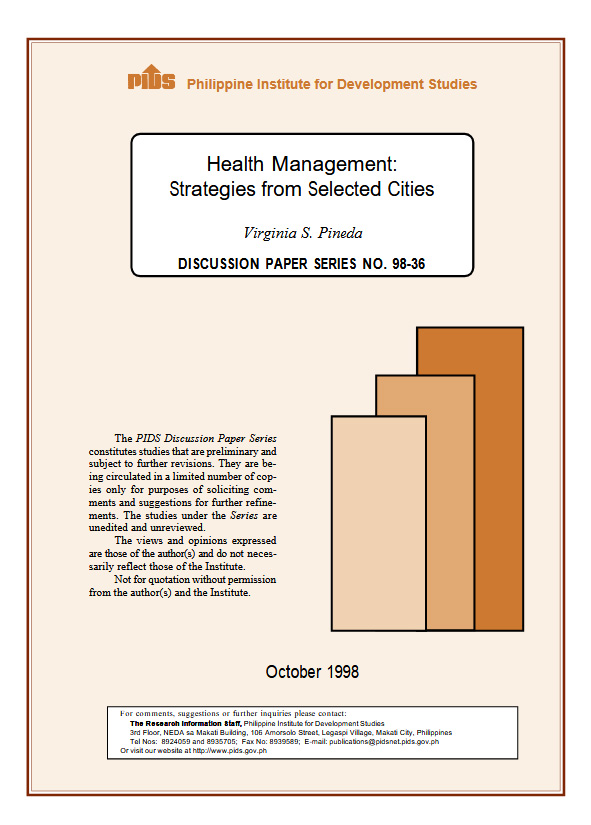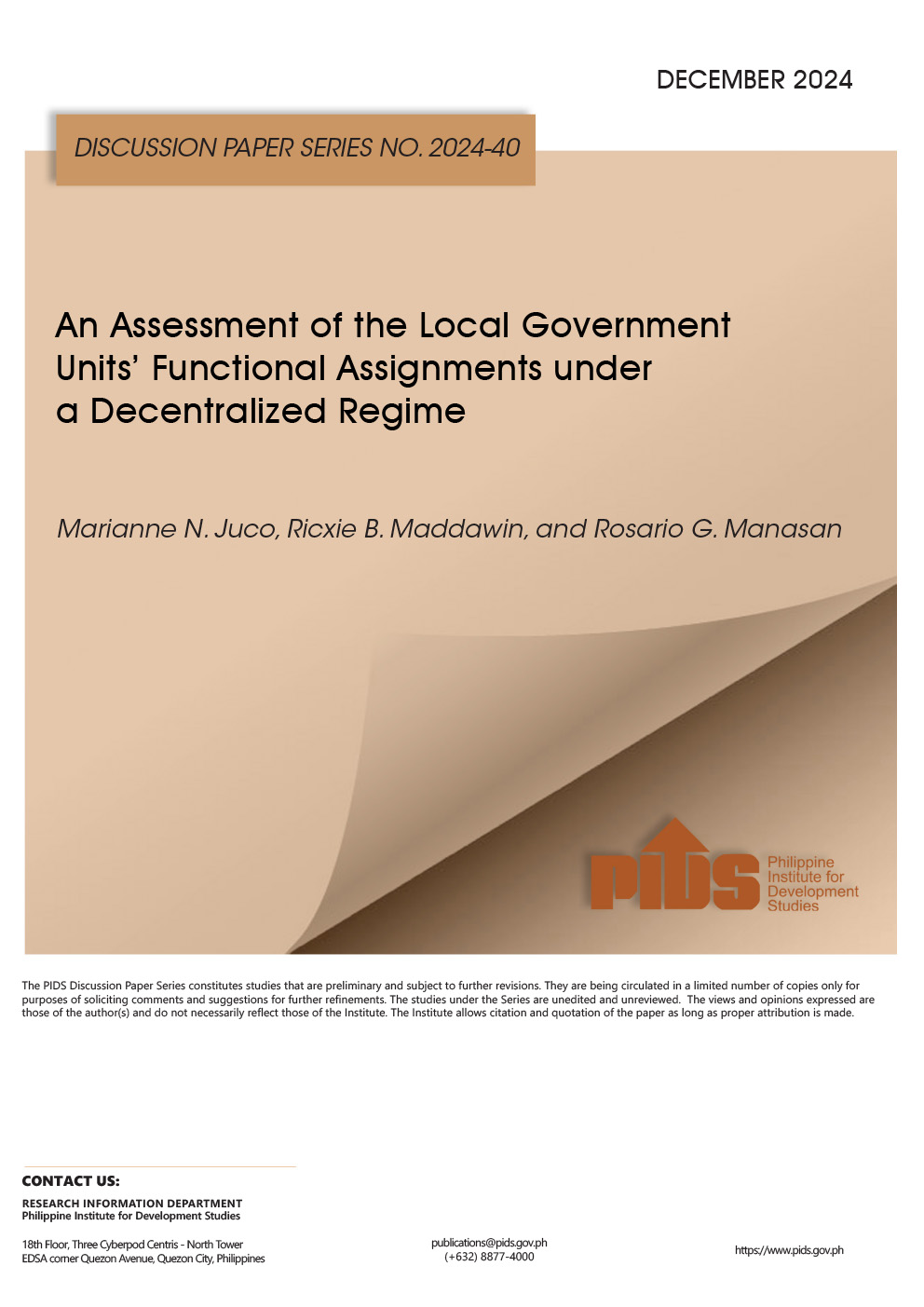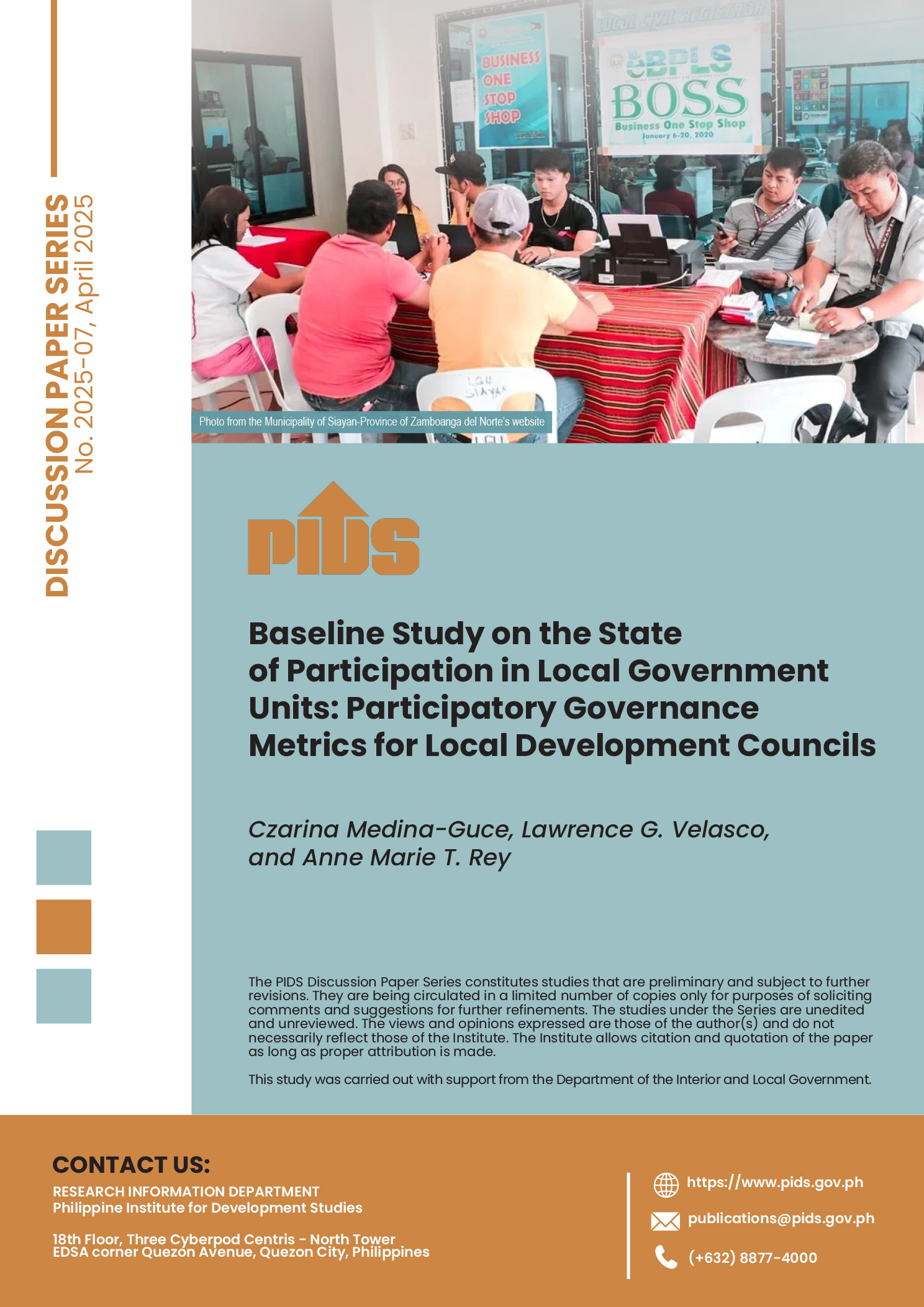In the light of increased demand for basic services and sanitation facilities due to urbanization, devolution facilitates the smooth and fast delivery of social services. In the health sector, however, the strongest opposition, due to issues of tenure, the sustainability of devolved facilities and the politics of health services, has met devolution. Various local officials have complained over the delay and insufficiency of funds that deter the immediate implementation of health programs. However, there are LGU’s where health sector devolution has reaped appreciation. The focus of this paper is to highlight the model cities recommended by NEDA regional offices, which are winners of various competitions such as Galing Pook and Health and Management System Awards. This is in the hope of setting examples in overcoming the limitations entailed by devolution in the health sector.
Citations
This publication has been cited 3 times
- Capuno, Joseph J.. 2010. Leadership and innovation under: A case study of selected local governments in the Philippines. UP School of Economics Discussion Papers 201010. University of the Philippines School of Economics.
- Capuno, Joseph J.. 2005. The quality of local governance and development under decentralization in the Philippines. UP School of Economics Discussion Papers 200506. University of the Philippines School of Economics.
- Lieberman, Samuel S., Joseph J. Capuno, and Hoang Van Minh. 2004. Health decentralization in East Asia: Some lessons from Indonesia, the Philippines, and Vietnam. UP School of Economics Discussion Papers 200408. University of the Philippines School of Economics.













